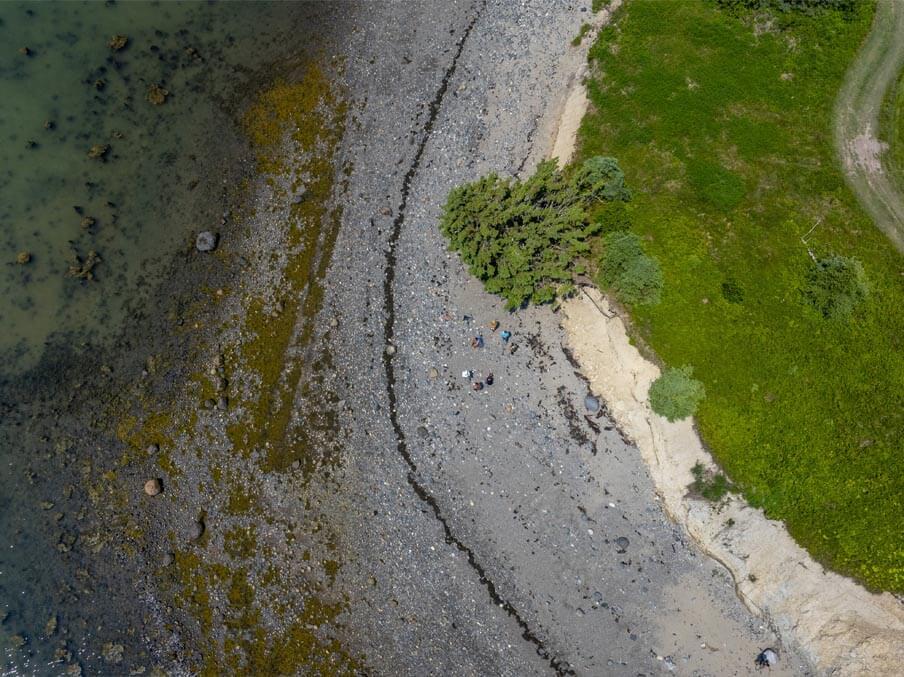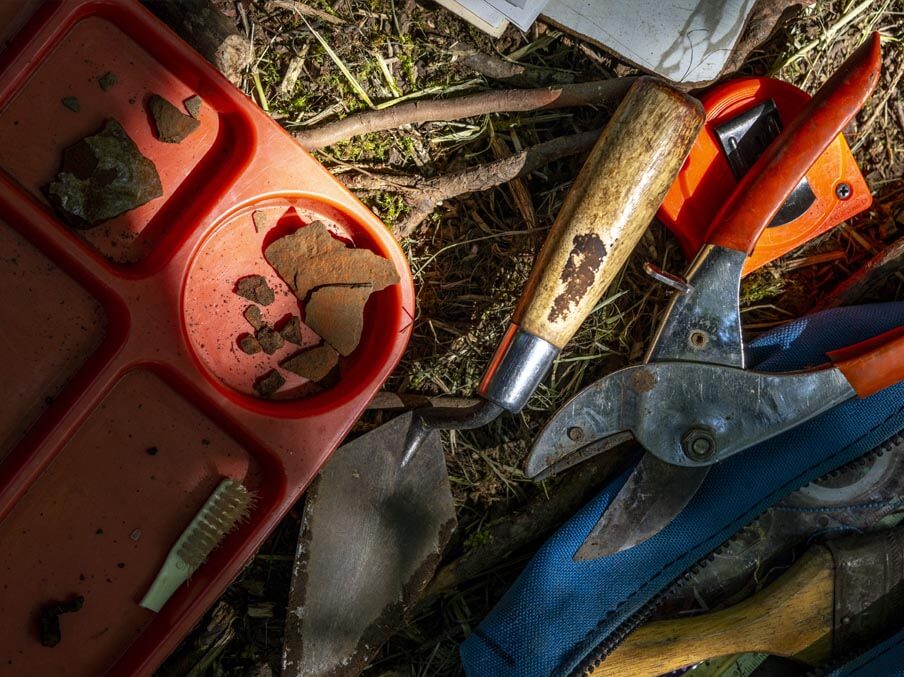Bonnie Newsom, PH.D.
Associate Professor | Anthropology
Faculty Associate | Climate Change Institute
Newsom works along Maine’s coastline to preserve important history from the Wabanaki Nations.
Bonnie Newsom’s life is fueled by a purpose both personal and professional: preserving and sharing the ancient stories from the Wabanaki Nations. Maine’s Indigenous coastal sites are facing the brunt of climate change with rising sea levels threatening to sweep away the ancient truths of these societies buried under the rock and sediment. Once it’s gone, it can never be recovered. And if it can’t be recovered, her aspirations to reshape the stories of Indigenous peoples––moving away from the Euro-centric narratives that dominate history books and reconnecting Wabanaki Nations with their ancestral heritage––becomes all the more challenging.
As a cultural archaeologist and citizen of the Penobscot Nation, she uses her research to empower Wabanaki Nations to make informed stewardship decisions about the land that has sustained generations of their ancestors.


“We hope to change not only public perception but also to reconnect Wabanaki people to our ancestral past through an Indigenous archaeology lens,” says Newsom. Using Indigenous languages and community voices the team reinterprets artifacts like stone tools, bone remnants, and ceramic pieces, highlighting a continuous Wabanaki Nations presence in the Acadia region.
The National Park Service has enlisted Newsom and her students to develop strategies to protect these sites in Acadia. Integrating Indigenous knowledge with Western science, they hope to preserve these spaces in collaboration with the Houlton Band of Maliseet Indians, Mi’kmaq Nation, Penobscot Nation, and the Passamaquoddy Tribe.
Newsom’s work is critical and time-sensitive, but her resourcefulness and collaboration with fellow researchers and Wabanaki Nations is forging new paths to ensure their histories are told authentically and preserved for future generations.
